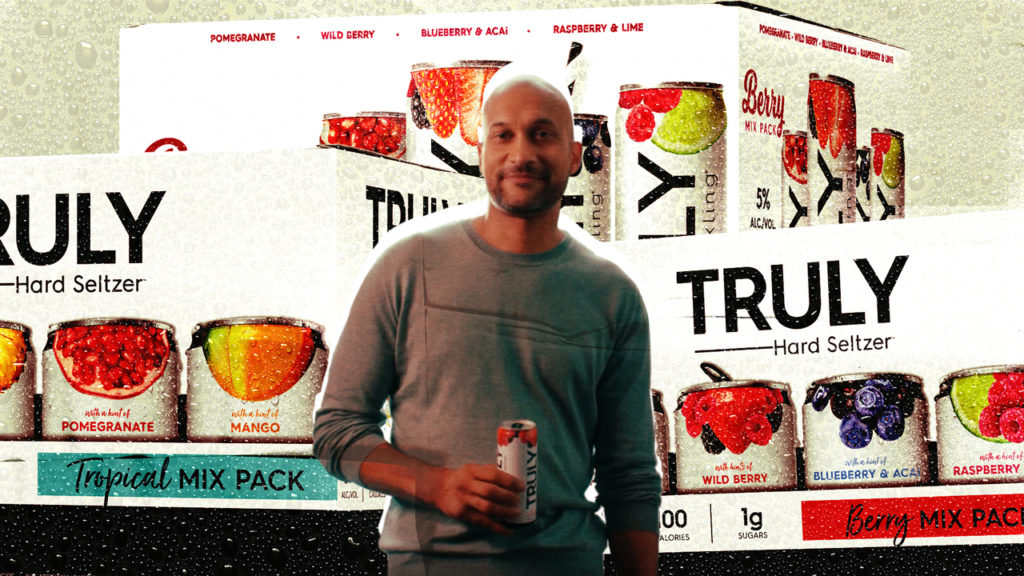Truly Hard Seltzer invites consumers to “drink what you truly want” instead of more traditional spirits like beer, wine and liquor. Five video spots feature actor and comedian Keegan-Michael Key (MadTV, Key & Peele) who demonstrates other uses for those leftover bottles.
In each spot, Key encounters a common, everyday task like cleaning, cooking on the barbeque or preparing for a date. It is then revealed that Key uses bottles of wine, beer and other spirits for these purposes instead of drinking them.
“Through this campaign, we are championing the idea of embracing Truly as a refreshing new choice compared to their old repertoire. Keegan-Michael Key brings levity and personality to the brand in a way that we think drinkers will connect with and will help us stand out in a meaningful way,” said Lesya Lysyj, CMO of Boston Beer Company, the parent of Truly Hard Seltzer, in a statement.
The video ads end with Key stating that Truly Hard Seltzer has 100 calories, one gram of sugar and five percent alcohol by volume—speaking directly to a growing base of health-conscious drinkers.
Hard seltzer sales have grown 193 percent year over year (YoY) as of the 52 weeks ended April 20, 2019. The segment has grown significantly, Nielsen speculates, thanks in part to a lower price, convenience and fewer calories than many other alcoholic beverages.
Consumers also prefer variety in their alcohol consumption. The most popular flavors of hard seltzer sold during the aforementioned period were “assorted flavors” at 66.2 percent followed by Stone Fruit at 11.8 percent.
AB InBev launched several marketing campaigns around its brand, Bon & Viv’s SpikedSeltzer, including a spot during Super Bowl LIII. Last August, the brand sought to connect with NYC locals impacted by the L Train shutdown by offering free bicycles and moving boxes.
The seltzer boon isn’t just for alcoholic beverages, either. Seltzer water has become increasingly popular with millennials, due in large part to the success of La Croix. In the last five years, the sales of carbonated water have grown 42 percent, according to Beverage Marketing Corp.
In August of 2018, PepsiCo acquired SodaStream for $3.2 billion in a move to expand their water portfolio as consumers move away from sugary, carbonated drinks. The reusable container also fits into a growing concern regarding plastic use among consumers.

